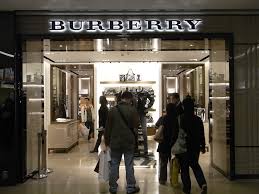For the past few years, we’ve been hearing lots about the burgeoning luxury market and how strong sales have been for luxury brands, despite the recession ($40,000 backpacks, anyone?). Only now, according to analysts, have those numbers begun to wane for certain labels.
Brands like Tiffany, Louis Vuitton, Gucci and Burberry all reported slow growth this quarter compared with years passed, in addition to seeing stocks fall this year.
But, why? According to a new report in the Financial Times, it’s because of an increasingly important factor in a luxury brand’s success: ubiquity.
Ubiquity is “the new buzzword for luxury” and, having too much of it is now “a major concern” for luxury brands, according to an HSBC analyst.

Perhaps the strongest example of a luxury brand that may be suffering from too much ubiquity is Burberry–a brand that has been heralded for its strong, clear brand message; outstanding social media presence; and success in attracting customers overseas.
But could those same characteristics now be hurting the British heritage brand? Burberry issued a profit warning in September after years of record-breaking sales.
Like most luxury brands, Burberry has been focusing on growing its Chinese customer base by opening stores and staging events, potentially at the cost of other, more discerning customers. “The need to reach new consumers is beginning to conflict with the perception among those consumers of what constitutes luxury,” writes Scheherazade Daneshkhu.

Other qualities contributing to ubiquity: retail availability, number of diffusion lines, and exclusivity by cost and product assortment.
Don’t pull out your investments just yet. Some brands are still doing fine. Hermes, for instance, remains the most exclusive of exclusive luxury brands and their sales and profitability targets have increased this year.
So what can brands do now to curb their ubiquity? According to the Financial Times, Vuitton is already making an effort by slowing Chinese expansion in favor of making their existing stores even more luxurious with VIP rooms and personalization. “You need the very unique pieces, not just logo,” said PPR CEO Francois-Henri Pinault, who may soon be investing in a new luxury brand.
It seems safe to say that in coming seasons, luxury consumers can expect more personal attention and expensive, limited-edition items. It will also be interesting to see if and how much these companies will be willing to slow down Chinese expansion, when the Chinese have just recently officially become the largest consumers of luxury goods in the world.
In addition to customers becoming increasingly discerning, perhaps this all goes back to the age-old idiom that we all just want what we can’t have.